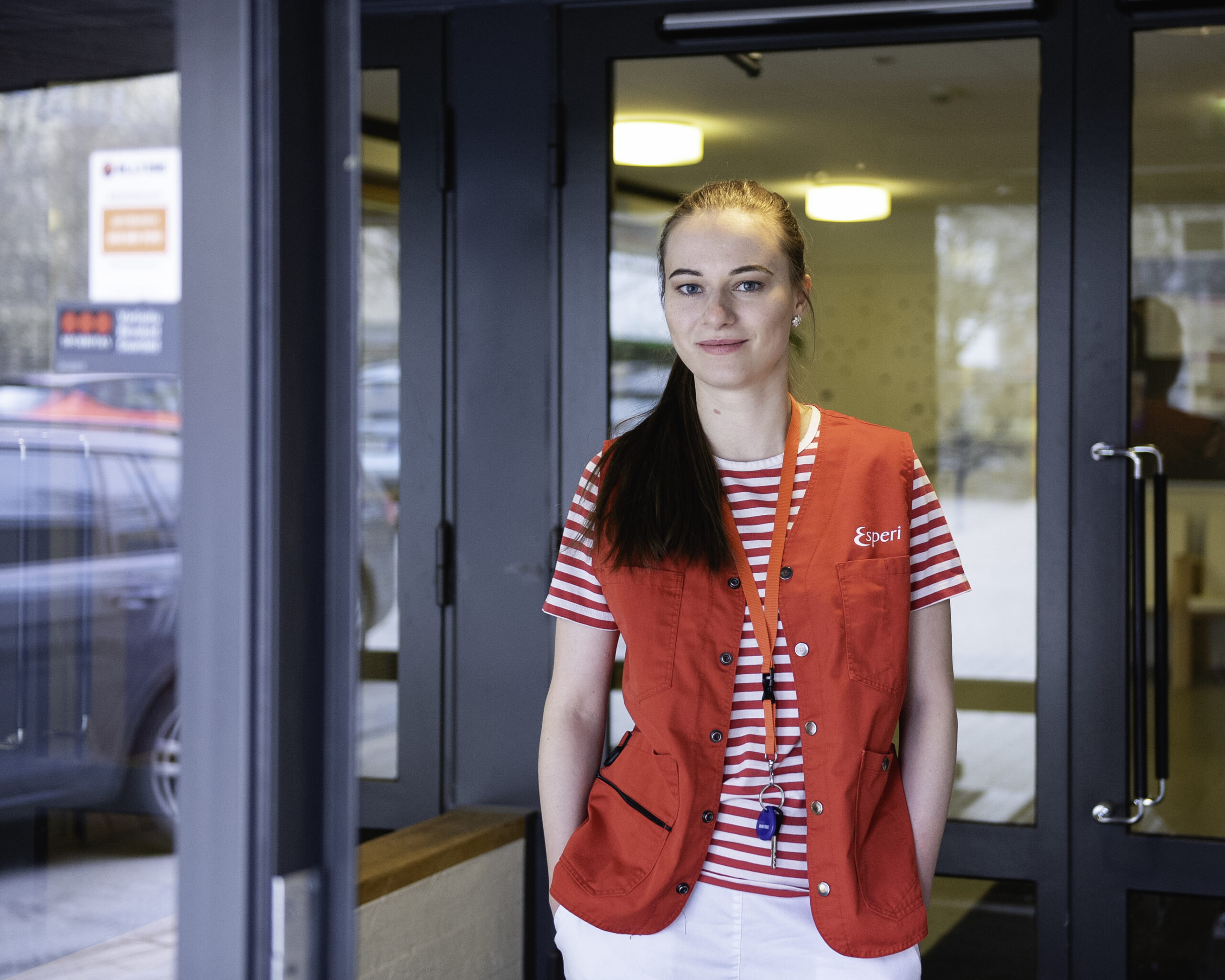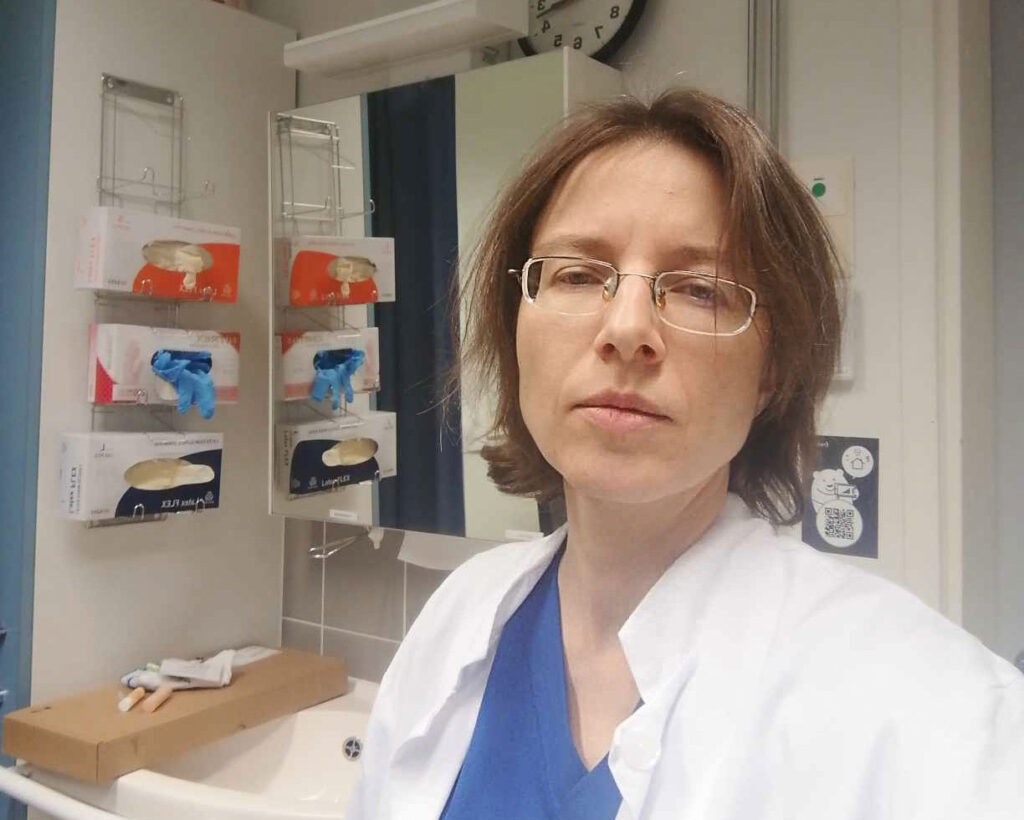Ukrainian healthcare workers in Finland: long way to medical practice

Hrystyna Vdovenko combines work in the retirement house and studies at vocational school. She intends to get the qualification of the nurse or dental nurse in Finlalnd. PHOTO: NADIIA FEDOROVA
Nadiia Fedorova
Published 08.05.2024 10:41
Updated 08.05.2024 10:41
Ukrainian physiotherapist Hrystyna Vdovenko, 27, works in Finland as a care assistant. After the beginning of the Russian invasion, Hrystyna came to Finland where her boyfriend lives. She decided not to go through the licensing process. Instead, she entered the vocational school to study for the lowest position in the medical field.
“I thought that it would be easier for me to start all over again than to study Finnish to a very high level and then fulfill all the requirements of Valvira”, says Hrystyna, referring to Finland’s national agency responsible for granting healthcare profession licenses.
Having medical experience did not provide any extra advantages for Hrystyna during the selection process for the vocational school. The language test, necessary for enrolling, was quite easy. Hrystyna managed to pass it after several months of self-studying and basic language courses, organized by Finnish volunteers.
After half a year of studying, students had to find an internship place. Hrystyna secured one at the retirement home Untuva in Helsinki and, after a successful internship, was offered a work-and-study contract there.
Now she works in the retirement house and continues the studies in vocational school to become a practical nurse. Medical knowledge, gained in Ukraine, helps her in her work and studies. As for Finnish, Hrystyna thinks that it progresses better in the workplace. However, sometimes she feels that more systematic language knowledge would be needed.
According to Hrystyna, the Finnish education system is quite different from Ukrainian. Students are entitled to individual approach. Everyone gains credits at their own pace, a lot of topics are meant for self-studying. However, it is not easy to combine full-time work and study. Thus, it can take more time to get the diploma.
Hrystyna does not complain about downgrading in the field. “The position of care assistant is the possibility to get a job and salary right away”, she says.
Several years and thousands of euros to practice one’s profession
Other specialists have chosen another way. According to Valvira’s statistics, 94 healthcare professionals with Ukrainian degrees have applied for qualification recognition in Finland since 2022. One of them is Anna Yelishevych, a general practitioner with 13 years of experience in the field. After arriving in Finland, she sent her documents to Valvira and enrolled at the integration course to start learning Finnish.
The licensing process entails passing language proficiency tests at upper-intermediate level (B2), securing a half-year long internship at healthcare unit and completing preparatory course at the university. Finally, the doctor has to pass 3 exams in medicine.
Anna counted, that the whole process will take around 4 years or even more. Now she is half way there, learning Finnish and getting ready for the language test.

The costs incurred along the journey are quite significant. Translation of the documents, Valvira fees, language test and exams cost around 4800 euros.
According to the Head of the unit at Valvira Maarit Mikkonen, Ukrainian healthcare specialists are going through the same procedure as other doctors, educated outside EU and EEA. Such a long and complicated licensing process is defined by Finnish law. This year the Ministry of Social Affairs and Health has started work on the reform. They will decide what changes are to be made and what are the rational requirements for foreign healthcare professionals in the current situation.
Despite facing challenges in learning the language and fears about the future, Anna remains optimistic. The internship at Tampere’s hospital during her integration course reaffirmed her desire to pursue a doctor’s career in Finland.
“I want to stay in my own field”, she says.